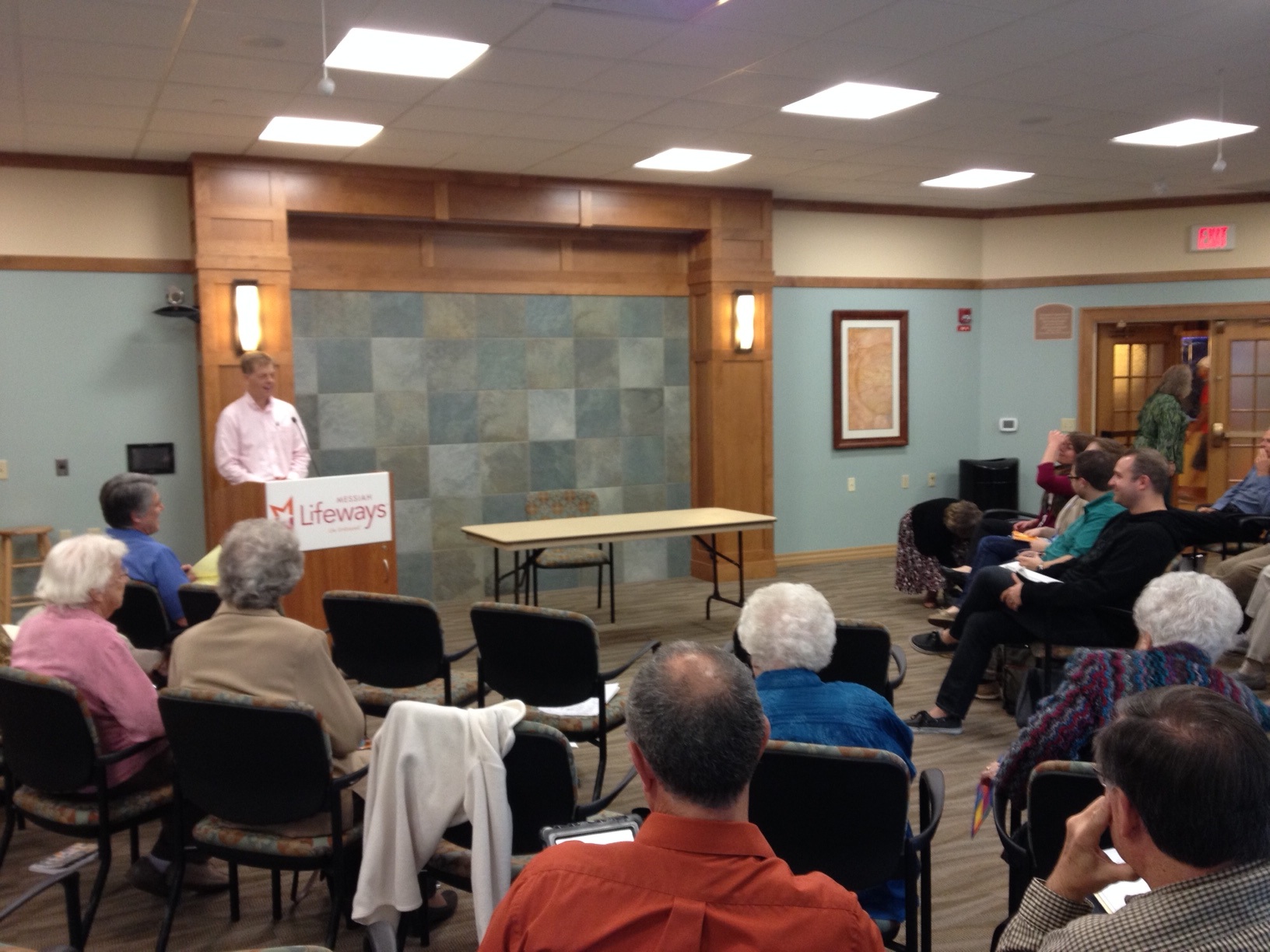
Yesterday morning I attended my first meeting of the Brethren in Christ Theological Study Group. I did not know this group even existed until recently! From what I can tell, it’s a local, grassroots gathering among Brethren in Christ pastors (and some laypeople) in Pennsylvania to discuss pressing theological issues. According to Bob Verno, the pastor of West Shore Brethren in Christ Church and one of the Theological Study Group conveners, this group has met sixteen times since it got its start in 2010. Interesting!
Yesterday’s gathering took place at Messiah Village, a Brethren in Christ-related retirement home in Mechanicsburg, Pa., and focused on “Renewing our Theological Identity: What It Means to be Brethren in Christ Today.” Presenters included:
- Curtis Book, peace and justice coordinator for Mennonite Central Committee East Coast, who argued that the Brethren in Christ theological tradition is primarily shaped by a “core” Anabaptist ecclesiology and Wesleyan soteriology;
- Heather Brickner, life groups pastor at Carlisle Brethren in Christ Church, who described theological values — peace, community, simplicity, and others — that position the Brethren in Christ well for ministry among millennials; and
- Alan Robinson, Brethren in Christ U.S. national director, who encouraged the Brethren in Christ to rethink some of the simple assumptions that have dominated our conversation about theological identity, particularly our simplistic understanding of Evangelicalism as a tradition.
I found everyone’s presentations to be stimulating, and agreed with much of what I heard. In particular, Alan’s challenge to re-think the definition of Evangelicalism resonates with much of my own thinking on the matter, and reinforces my own argument about the more complex ways that the Brethren in Christ have related to Evangelicals throughout our history. We Brethren in Christ would do well to recognize that Evangelicalism has at times been attracted to our Anabaptist-infused understanding of discipleship and community. Yet at the same time we need to heed the advice of the late Luke Keefer Jr. to be “Evangelicals with a difference” (in much the same way we’ve been Anabaptists, Pietists, and Wesleyans “with a difference”).
I felt that Curtis’ presentation, with its focus on defining our identity as Anabaptist ecclesiology and Wesleyan soteriology, was compelling from a confessional perspective but not wholly convincing from a historical/theological perspective. Given my strong feelings about the potential for Pietism as a “usable past” for the Brethren in Christ (which I’ve explained here and here), and given the fact that Wesleyan Holiness theology came to the Brethren in Christ from the American Holiness movement and not the Pietist-influenced Methodist tradition, I can’t accept Curtis’ basic assertion that Wesleyanism offers the Brethren in Christ the full soteriology that we embrace in our current doctrinal statement. But I agree with his broader contention that the Brethren in Christ need to re-assess our Wesleyan tradition in order to access the rich resources of Christian holiness.
I hope that these conversations can continue in other venues — venues that allow us to include more Brethren in Christ folks in the conversation.

Sounds like a really intriguing group. Is there a way for folks who are not officially invited to be a part of this to at least observe these meetings or read presentations after the fact? Seems like there is some significant interaction occurring in this group…significant for all of us!